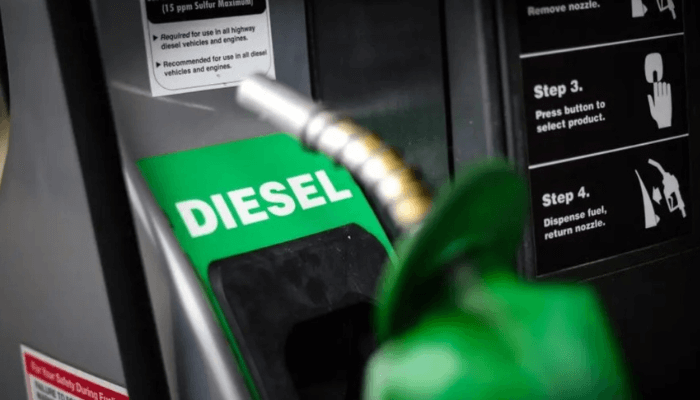Despite recent price cuts by Africa’s richest man, Aliko Dangote, on his Dangote Industries conglomerate’s diesel, many Nigerians are still struggling with the high cost of the fuel.
This essential commodity, used to power generators, trucks, and machinery, remains frustratingly expensive for many, impacting businesses and everyday lives.
Take Ngozi Uzordike, a baker in Lagos. “The price of diesel has been a nightmare,” she said, wiping flour off her hands. “I have to cut back on production, which means fewer sales and having to explain to customers why their favourite treats aren’t available.”
Ngozi’s story is a common one. Artisans, traders, and even commuters who rely on buses powered by diesel are feeling the pinch.
The hope sparked by Dangote’s price announcement has dimmed as many retailers are yet to reflect the reduction.
Emeka Okafor, who runs a consulting firm in Lagos, shared his frustration. “Dangote announces a price cut, but when I go to buy diesel, the price is still the same. How can we survive like this?” he lamented.
Emeka explained that the high cost of diesel has forced him to raise his service fees, putting a strain on his customers’ wallets as well.
The reasons behind the slow trickle-down effect are unclear. Some speculate that retailers are waiting to exhaust their existing stock bought at higher prices before offering the discounted rate.
Others worry about potential supply chain issues or hidden costs that might negate the announced price cut.
The impact of high diesel prices goes beyond businesses. Households that rely on generators for backup power during outages are feeling the strain.
Dangote crashes prices
The Dangote Petroleum Refinery, on Tuesday, announced a further reduction in the prices of diesel and aviation fuel to N940/litre and N980/litre respectively.
The price change of N940 applies to customers buying five million litres and above from the refinery, while the price of N970 is for customers buying one million litres and above,” the firm stated in a statement issued by its spokesperson, Anthony Chiejina.
He explained that the new price aligned with the company’s commitment to cushion the effect of the economic hardship in Nigeria.
“I can confirm to you that Dangote Petroleum Refinery has entered a strategic partnership with MRS oil and gas stations to ensure that consumers get to buy fuel at affordable prices in all their stations, be it Lagos or Maiduguri.
“You can buy as low as one litre of diesel at N1,050 and aviation fuel at N980 at all major airports where MRS operates,” Chiejina stated.
He further noted that the partnership would be extended to other major oil marketers.
“The essence of this is to ensure that retail buyers do not buy at exorbitant prices. The Dangote Group is committed to ensuring that Nigerians have better welfare and as such, we are happy to announce these new prices.
“We hope that it would go a long way to cushion the effect of economic challenges in the country,” the spokesperson of the refinery stated.
High diesel prices
Filling stations across different parts of Nigeria are selling diesel at an average rate of between N1,350/litre and N1,450/litre despite the price cut by Dangote refinery.
In some fuel stations along the Ijegun axis of Lagos State, it was observed that the product sold for N1,350/litre.
An outlet belonging to Mobil along Isheri Ijegun road in Alimosho Area of Lagos State sold the product for N1,350/litre.
A filling station of the Nigerian National Petroleum Company Limited along Egbeda-Idimu road also dispensed diesel at N1,350/litre on Tuesday.
However, most of the fuel stations along the axis were not selling the product as at the time of filling this report.
Marketer’s response
When asked to explain why marketers were still selling the commodity at between N1,350/litre and N1,450/litre depending on the area of purchase, the Independent Petroleum Marketers Association of Nigeria IPMAN said it was because many dealers were still having the old and stock which they bought at N1,225/litre.
“The price reduction by Dangote refinery will not reflect at the pumps immediately because he started selling at the rate of N1,225/litre. Many marketers bought at that price and are still selling that stock,” Abubakar Maigandi, national president of IPMAN said.
He added, “So there is no way they can be able to reduce the price to below their cost price. But with time, the price of the product at the filling stations will reduce and normalise.
